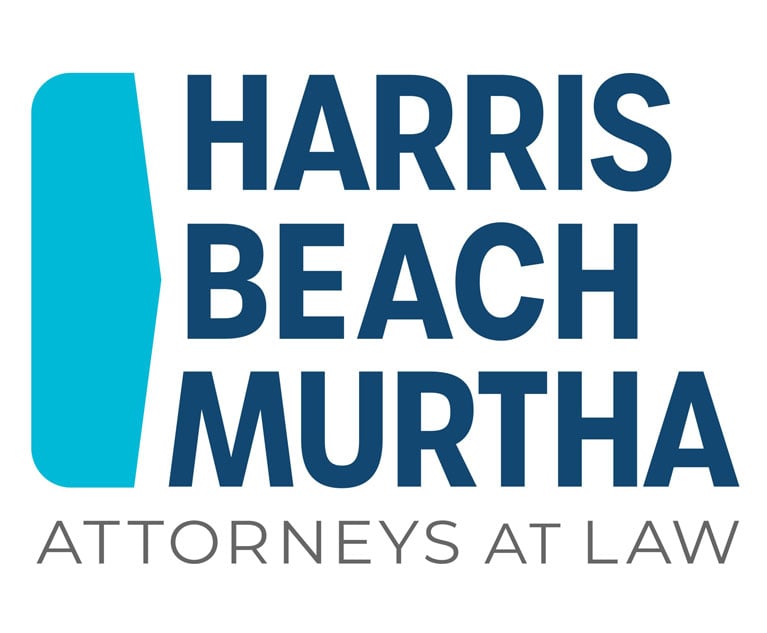Manhattan DA Takes Heat for Dropping High-Profile Probes
Manhattan District Attorney Cyrus Vance Jr. is facing mounting criticism for his decisions to drop investigations against high-profile targets, which have come under scrutiny in the last week.
October 11, 2017 at 03:56 PM
5 minute read

Manhattan District Attorney Cyrus Vance Jr. is facing mounting criticism for his decisions to drop investigations against high-profile targets, which have come under scrutiny in the last week.
Media reports have revealed that his office dropped investigations into allegations of sexual assault and harassment against Hollywood producer Harvey Weinstein; and fraud allegations against Ivanka Trump and Donald Trump Jr. regarding the tactics that the siblings used to attract potential buyers for the Trump SoHo hotel.
Vance in particular has taken flak for campaign donations he received from attorneys representing the targets of those investigations. One New York elected official has asked New York Attorney General Eric Schneiderman to look into possible corruption allegations.
A spokeswoman for Schneiderman's office declined to comment.
In 2012, Marc Kasowitz of Kasowitz Benson Torres, a longtime attorney for the Trump family gave $25,000 to Vance's re-election campaign, but Vance later returned the donation.
After the investigation into the Trump siblings was dropped, Kasowitz made another $32,000 donation to Vance; Vance returned the donation last week.
Vance had been running unopposed for his third term and was expected to skate into re-election. But on Wednesday, a write-in candidate emerged.
With regard to the investigation into Weinstein, who Vance's offices targeted for an investigation into allegations that in 2015 he sexually assaulted Italian model Ambra Battilana Gutierrez, Vance's office has clashed through the press with the New York City Police Department over the handling of the investigation.
A police source told The New Yorker that enough evidence had been collected to pin charges on Weinstein for the assault, but another source told the magazine that statements Gutierrez made in the past complicated the investigation.
In a statement issued on Tuesday, Karen Friedman Agnifilo, Vance's chief assistant, said that the conduct that Weinstein is being accused of is “disgraceful and shocks the conscience,” and that if the office could have prosecuted Weinstein for conduct that occurred in 2015, “we would have.”
Agnifilo said that the New York City Police Department arranged a meeting between Weinstein and Gutierrez without the Manhattan DA's knowledge and that prosecutors in the office's sex crimes unit were unable to speak with police prior to the meeting to give them guidance on what to look for to be able to bring charges.
“While the recording is horrifying to listen to, what emerged from the audio was insufficient to prove a crime under New York law, which requires prosecutors to establish criminal intent,” Agnifilo said.
The audio portrays Weinstein apparently trying to coax Guiterrez into his hotel room.
On Wednesday, Vance addressed the Weinstein investigation directly during an interview with a group of reporters that was broadcast by CNN, saying that his office would have prosecuted a case against Weinstein “if we had a case.”
But Vance said he also understood why there is outrage over Weinstein's behavior.
“He has some issues and the tape is terrible,” Vance said.
When asked about campaign contributions, Vance said that donations have never had the “slightest impact on my decision-making” as a prosecutor.
“Contributions are unfortunately a part of running for office,” he said. “They are legal and I have a very sound vetting system.”
Weinstein's attorney, David Boies of Boies Schiller Flexner made a $10,000 donation to Vance after the investigation was dropped, but Vance's office said Boies did not represent Weinstein in the Gutierrez matter.
Boies told The American Lawyer that he has not had dealings with the Manhattan DA's office for the last 15 years and a spokesman for his firm said that Boies had never discussed Weinstein with Vance.
Assemblyman Dan Quart, a Democrat who represents the Upper East Side and Midtown East sections of Manhattan, sent a letter to Schneiderman's office last week—after news of the case involving the Trump children broke, but prior to the revelations about Weinstein—calling for an investigation into possible pay-to-play by Vance's office.
“The people of Manhattan have a right to know whether their district attorney is being unduly influenced by campaign donations,” Quart said in the letter.
But some in the legal community have challenged the notion that an unopposed incumbent holding an office as prominent as Manhattan DA would have the incentive to do favors for prominent defendants in exchange for campaign cash.
“When you're a public officeholder and that position is rarely challenged, there's very little reason to do more than minimal fundraising,” said David Saxe, a retired justice of the Appellate Division, First Department.
On Wednesday, Marc Fliedner, a former Brooklyn prosecutor who ran unsuccessfully to head that office earlier this year, has announced that he will take on Vance as a write-in candidate.
Fliedner, who came in third in a six-way primary September for the Democratic nomination for Brooklyn District Attorney, announced on his Twitter page for his campaign he would accept calls for him to challenge Vance “to give voters an ethical choice in a landscape totally devoid of women's rights and equal justice.”
NOT FOR REPRINT
© 2025 ALM Global, LLC, All Rights Reserved. Request academic re-use from www.copyright.com. All other uses, submit a request to [email protected]. For more information visit Asset & Logo Licensing.
You Might Like
View All

Climate Disputes, International Arbitration, and State Court Limitations for Global Issues
Trending Stories
- 1'It's Not Going to Be Pretty': PayPal, Capital One Face Novel Class Actions Over 'Poaching' Commissions Owed Influencers
- 211th Circuit Rejects Trump's Emergency Request as DOJ Prepares to Release Special Counsel's Final Report
- 3Supreme Court Takes Up Challenge to ACA Task Force
- 4'Tragedy of Unspeakable Proportions:' Could Edison, DWP, Face Lawsuits Over LA Wildfires?
- 5Meta Pulls Plug on DEI Programs
Who Got The Work
Michael G. Bongiorno, Andrew Scott Dulberg and Elizabeth E. Driscoll from Wilmer Cutler Pickering Hale and Dorr have stepped in to represent Symbotic Inc., an A.I.-enabled technology platform that focuses on increasing supply chain efficiency, and other defendants in a pending shareholder derivative lawsuit. The case, filed Oct. 2 in Massachusetts District Court by the Brown Law Firm on behalf of Stephen Austen, accuses certain officers and directors of misleading investors in regard to Symbotic's potential for margin growth by failing to disclose that the company was not equipped to timely deploy its systems or manage expenses through project delays. The case, assigned to U.S. District Judge Nathaniel M. Gorton, is 1:24-cv-12522, Austen v. Cohen et al.
Who Got The Work
Edmund Polubinski and Marie Killmond of Davis Polk & Wardwell have entered appearances for data platform software development company MongoDB and other defendants in a pending shareholder derivative lawsuit. The action, filed Oct. 7 in New York Southern District Court by the Brown Law Firm, accuses the company's directors and/or officers of falsely expressing confidence in the company’s restructuring of its sales incentive plan and downplaying the severity of decreases in its upfront commitments. The case is 1:24-cv-07594, Roy v. Ittycheria et al.
Who Got The Work
Amy O. Bruchs and Kurt F. Ellison of Michael Best & Friedrich have entered appearances for Epic Systems Corp. in a pending employment discrimination lawsuit. The suit was filed Sept. 7 in Wisconsin Western District Court by Levine Eisberner LLC and Siri & Glimstad on behalf of a project manager who claims that he was wrongfully terminated after applying for a religious exemption to the defendant's COVID-19 vaccine mandate. The case, assigned to U.S. Magistrate Judge Anita Marie Boor, is 3:24-cv-00630, Secker, Nathan v. Epic Systems Corporation.
Who Got The Work
David X. Sullivan, Thomas J. Finn and Gregory A. Hall from McCarter & English have entered appearances for Sunrun Installation Services in a pending civil rights lawsuit. The complaint was filed Sept. 4 in Connecticut District Court by attorney Robert M. Berke on behalf of former employee George Edward Steins, who was arrested and charged with employing an unregistered home improvement salesperson. The complaint alleges that had Sunrun informed the Connecticut Department of Consumer Protection that the plaintiff's employment had ended in 2017 and that he no longer held Sunrun's home improvement contractor license, he would not have been hit with charges, which were dismissed in May 2024. The case, assigned to U.S. District Judge Jeffrey A. Meyer, is 3:24-cv-01423, Steins v. Sunrun, Inc. et al.
Who Got The Work
Greenberg Traurig shareholder Joshua L. Raskin has entered an appearance for boohoo.com UK Ltd. in a pending patent infringement lawsuit. The suit, filed Sept. 3 in Texas Eastern District Court by Rozier Hardt McDonough on behalf of Alto Dynamics, asserts five patents related to an online shopping platform. The case, assigned to U.S. District Judge Rodney Gilstrap, is 2:24-cv-00719, Alto Dynamics, LLC v. boohoo.com UK Limited.
Featured Firms
Law Offices of Gary Martin Hays & Associates, P.C.
(470) 294-1674
Law Offices of Mark E. Salomone
(857) 444-6468
Smith & Hassler
(713) 739-1250








